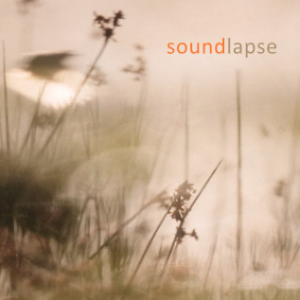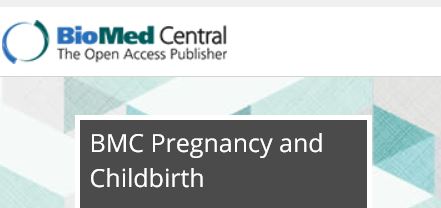A bit of a catch up on a range of issues this week after an education focus in our last couple of updates.
Ukraine – UK HE’s approach
Wonkhe readers will already have seen their round up relating to the Russian invasion of Ukraine. Here it is for those who haven’t caught it yet:
- Ukraine’s Ministry of Education and Science wrote to the Bologna Follow-Up Group and key organisations across higher education in Europe asking that Russia be expelled from the European Higher Education Area and the Bologna Process, which seeks to achieve comparability in the quality and standards of higher education qualifications across Europe, and as such facilitates cross-border recognition and mobility.
- Ukraine’s National Agency for Quality Assurance in Higher Education also issued a statement… appealing to the global higher education community to suspend Russian participation in all European and global higher education networks and organisations. The statement also called on all educators and researchers to stop all collaborations with representatives of the Putin regime, and to stop all cooperation with Russia’s higher education and research institutions and representative associations.
- The response from European and UK representative bodies has been moderated by a hesitation about whether it is appropriate to punish Russian university staff and students, especially where they oppose the invasion. The European University Association has undertaken to cease contact and collaboration with all Russian central agencies and those who support the invasion, and has advised its members to ensure that any new collaboration with Russian institutions is based on “shared European values.”
- Universities UK International has taken a similar stance, advising UK universities to risk assess existing partnerships and collaborations and make decisions on a case-by-case basis rather than urging a “blanket academic boycott.”
- Women and Equalities select committee chair Caroline Nokes proposed in The Times that UK universities coordinate a national programme that would enable students from Ukraine to take up places at UK universities.
PQs:
Research
On Tuesday the Lords Science and Technology Committee ran a session on Delivering a UK science and technology strategy. The Committee received evidence and discussed the UK science and technology strategy, focusing on Government support for research and development, early stage and late stage funding opportunities, the talent pool, and the relationship between universities and industry.
The Chair commented that the Research Excellence Framework could act as an inhibitor. However, Kennett, who was invited to provide oral evidence disagreed. She stated it was important to consider how could business work better with the REF. For example, it was important to consider where there was potential for applied science, which could perhaps be measured in a different way under the REF.
Lord Sarfraz (Con) asked if the UK was indeed the best place to be a founder and launch a start-up. Suranga Chandratillake, Partner at Balderton Capital, commented this was a deceptively simple question. In his opinion, the UK was a very good place to launch a start-up, but it was more difficult to develop it into a large enduring business. The UK punched above its weights from a scientific point of view in terms of technology first start-ups. The data also demonstrated this, as early stage research funding were completed by UK-based funds, whereas the later stage funding included more foreign capital.
Baroness Rock (Con) asked the witnesses a question about the perception that ideas were born in UK universities and commercialised elsewhere. Chandratillake said they worked a lot with universities. In his opinion, today the companies were still being started in the UK, with the innovation remaining in the UK. At the early stage, the UK had a very strong ecosystem of investors public and private. However, issues remained at the stage of scaling up, which meant that many had to go abroad to find later stage capital (with many companies floating abroad).
Toon explained that science was about learning new knowledge, whereas innovation was about solving a problem. The UK was probably number two for discovery science in the world, with some of the world’s leading academic institutions based in the UK. However, the UK struggled with applied research, which fit between the science and innovation.
Baroness Blackwood of North Oxford (Con) asked the witnesses if the intellectual property (IP) laws were fit for purpose. Toon said that the IP regime was broadly fit for purpose. The challenge, however, was around ensuring that IP was handled appropriately in the innovation and research cycles, without restricting the freedom of businesses to operate
Lord Rees of Ludlow (CB) asked the witnesses a question about the talent pool and links to universities. Toon said that the UK had a massive talent pool in the leading institutions, which should be safeguarded. In his opinion, it was important to continue to create links between academic institutions and industry.
Quick news:
- The Intellectual Property Office has signed a new declaration of intention with the Swiss Federal Institute of Intellectual Property. They intend a co-operative relationship focusing on sharing of best practice in areas of mutual interest and modernising and enhancing services for IP users. The sharing of expertise and know-how between the offices is key and the declaration provides for the potential secondment of staff between the two offices to enhance skills and knowledge. It will help both offices embrace the global challenges and opportunities presented by emerging and future technologies, for the benefit of the wider IP community.
- Wonkhe – The Russell Group has written to the Chancellor Rishi Sunak ahead of the Spring Statement to outline how research and development funding could be used moving forward. The letter also calls for “a fully-functional, extended Guarantee” to those who have been accepted for Horizon Europe projects as the current government funding guarantee is too limited. Oral Questions within the House of Lords also touched on Horizon Europe this week: Lord Callanan confirmed that money for Horizon Europe will go to research if association is not possible. Lord Fox highlighted that many institutions are already experiencing a drop in postgraduate research applications. Claiming that “the brain drain is already happening,” he asked about attracting and keeping talent now. BEIS have also updated the Horizon Europe information available online.
- Also a parliamentary question on Horizon Europe: what steps his Department is taking to support researchers whose funding offers have been revoked due to delays in EU approval of UK participation in Horizon Europe. Answer: the Government has already committed to support the first wave of successful UK applicants to Horizon Europe who are unable to sign grant agreements with the EU due to these delays… awardees [will] receive the full value of their funding…We encourage the UK sector to continue applying to Horizon Europe calls and to continue forming consortia.
- Blog: The academic other in research management. There are many researchers in academia who aren’t on research contracts. Muriel Swijghuisen Reigersberg asks how we can be sure of hearing their voices. Excerpt: If academic and professional management roles are similar in responsibilities – and if increasingly many PhD-qualified staff are joining the ranks of research management due to an absence of employment opportunities within the academic disciplines – what is preventing us from exploring the creation of hybrid roles which make best-use of both a person’s academic skillset as well as their administrative acumen? I suggest it is perhaps our entrenched habit of othering either “those academics” or “university administrators”… Change is afoot, however. Recent UKRI consultations on equality, diversity and inclusion and research bureaucracy have explicitly extended an invitation to research management professionals to respond… I still think the sector is missing a trick. Due to our inclination to other we are under-utilising the skill sets that people have, stifling our ability to make the University sector a better place. As a hybrid or third-space Other, what “managerialism” has taught me is that people-development skills, succession planning and good administrative strategies can lead to research quality, enhanced (academic) staff wellbeing and employee satisfaction.
Parliamentary Questions:
The partnerships will develop plans to accelerate innovation-led growth in their city regions, building on local strengths and opportunities. They will receive dedicated support from the UK Government and will have access to a new £100m fund to support transformational R&D projects that grow R&D strengths, attract private investment, boost innovation diffusion, and maximise the combined economic impact of R&D institutions.
Catapults may be a part of Innovation Accelerators but are sector specific, designed to support innovation and de-risk the transition from research to commercial delivery for small, medium and large businesses. They achieve this through the provision of R&D infrastructure, specialist knowledge and expertise, partnership and collaboration building capabilities and business support.
Parliamentary News
In an effort to shore up Boris’ standing as PM, he has created a series of Conservative policy committees to give backbenchers more of a steer on policy decisions. Guido Fawkes published the chairs and vicechairs of the new MP-led Conservative policy committees. Here’s the list (Chair first, Vice Chair second):
- Education: Miriam Cates. Miriam formerly taught science in Sheffield, she also continues to run a Finance and Technology business. She’s been an MP since 2019 and her election campaign was strongly supported, in person, by Boris. Her stated political interests are public transport, education, the NHS and communities.
- DCMS: Philip Davies, Tom Hunt
- Health & Social Care: Caroline Johnson, Chris Green
- International Trade: Bob Blackman
- Treasury: Anthony Browne, Aaron Bell
- FCDO: Giles Watling, Mark Logan
- Home Affairs: Tom Hunt
- Justice: Gordon Henderson
- BEIS: Andrea Leadsom, Jo Gideon
- Transport: Chris Loder (MP for West Dorset), Simon Jupp
- LUHC: Cherilyn MacKrory, Sally-Ann Hart
- Defence: John Baron, Sarah Atherton
- Union: Andrew Bowie, Robin Millar
- DEFRA: Chris Grayling
- Work & Pensions: Nigel Mills
Richard Harrington has been appointed as Minister for Refugees with the position co-hosted by the Department for Levelling Up, Housing and Communities and the Home Office. Harrington will become a member of the House of Lords, having stepped down as Watford’s MP in 2019. During his time as an MP Harrington served as Parliamentary Under Secretary of State with responsibility for Syrian refugees.
Former Education Secretary Gavin Williamson CBE MP has received a knighthood.
Legislation – The Welsh government has released a written statement criticising the UK government for wanting to imminently move to the report stage of the Professional Qualifications Bill in the House of Commons. This would mean that the devolved governments would not be able to consider the amendments or provide consent to the legislation. (Wonkhe.)
Thoughts are turning to the Chancellor’s Spring Statement – Research Professional have a write up.
The Women and Equalities Committee ran a one-off session on Levelling Up and equalities which focused on protected characteristics within the context of the levelling up agenda and considered assessing gender identity and the ethnicity pay gap. Contact us for a summary of this session.
Admissions
Swiftly following the announcement in February that the government is no longer proceeding with plans to introduce post-qualifications admissions, UUK have published their fair admissions code of practice. This comes with a request that all universities sign up to it.
The code sets out an overarching guiding principle – that admissions processes must protect and prioritise the interests of applicants, above the interests of the universities and colleges, including that they should support student choice and not create unnecessary pressure.
Behaviours that demonstrate this principle:
- Above all, universities and colleges put the interests of applicants above their own. This includes an individual’s experience as an enquirer, applicant, and their student experience and ability to succeed should they be admitted to the university or college.
- Universities and colleges ensure that applicants have all the information they need to make an informed decision about the best course of study for them, and ensure entry requirements mean that applicants who are admitted can succeed on the course.
- Universities and colleges avoid applying undue pressure through their offer making practices or use of incentives. This means:
- Universities and colleges do not make ‘conditional’ unconditional offers or offers with significantly lower entry requirements based on the type of choice applicants make (for example, for those who apply through UCAS, whether an offer is made ‘firm’ or ‘insurance’).
- Universities and colleges only make use of unconditional offers when the applicant:
- already holds the required grades or qualifications for the course
- applies to a course where admissions decisions have been substantively informed by an interview, audition, or additional application procedures (such as the submission of a portfolio or skills test)
- requires special consideration due to mitigating circumstances, such as illness or disability
- is applying to a university or college where non-selective admissions to undergraduate programmes is a core part of the founding purpose of the university or college
- Universities and colleges ensure that the use of incentives does not place undue pressure on the decisions that applicants make, or the timescales in which they should make them, meaning:
- All incentives should be published clearly, consistently and accessibly, and communicated to applicants in a timely manner. This includes in relation to aspects of an offer communicated to applicants within or outside of UCAS that are tied to accommodation and other material and financial incentives.
- Universities and colleges should review their use of incentives against the revised principles set out in this code of practice.
- Universities and colleges do not use offer holder events or aspects of the admissions process that are used for assessment (such as interviews or auditions) to put undue pressure on applicant decision making.
- Universities and colleges value and support the achievement of applicants on their existing studies and develop offer making practices that uphold this value.
There are then additional principles that applicants can expect.
Admissions processes that are transparent
Universities and colleges abiding by this code of practice should provide the information applicants need to make an informed choice (such as information about the admissions process, the entry requirements, and selection criteria) consistently, clearly and efficiently through appropriate mechanisms.
- Universities and colleges use clear and simple language in admissions policy documents that is accessible to applicants and their advisers. Where possible, they use a common shared language (see the glossary for common examples) and the same language that is used in other guidance resources (such as the UCAS website).
- Universities and colleges can clearly explain admissions processes (including how qualifications, prior experience, and additional assessment such as personal statements, interviews and auditions are taken into consideration) and why types of offers are appropriate (including the use of contextual offers).
- As recommended in the Fair admissions review, universities and colleges aim to allow applicants to make use of historic, actual entry requirements to understand where past applicants may have been admitted holding lower grades. They can explain why students might have been admitted with lower entry requirements than advertised.
- Universities and colleges make the application deadlines clear and ensure they are aligned with relevant sector dates. They do not use deadlines to put undue pressure on applicants. They are also transparent about other relevant deadlines, including for provision of supporting documentation, final certificates, and applying for accommodation.
- Where possible, universities and colleges give useful feedback on request to unsuccessful applicants.
Admissions processes that enable universities and colleges to select students able to complete a course, as judged by their achievements and potential
- Universities and colleges give applicants the information they need to make an informed decision about the best course for them including course content, the award given, costs, and the university’s terms and conditions (in line with consumer rights legislation). Marketing and recruitment materials give potential applicants a clear idea of what studying at that university or college will be like.
- Admissions criteria do not include factors irrelevant to the assessment of merit.
- Universities and colleges only make use of unconditional offers when the applicant:
- already holds the required grades or qualifications for the course (this can include Scottish Qualification Authority Highers, where many applicants apply with grades suitable for entry)
- applies to a course where admissions decisions have been substantively informed by an interview, audition, or additional application procedures (such as the submission of a portfolio or skills test)
- requires special consideration due to mitigating circumstances, such as illness or disability
- is applying to a university or college where non-selective admissions to undergraduate programmes is a core part of the founding purpose of the university or college
Admissions processes that use reliable, valid and explainable assessment methods
- Where decisions are made differently to advertised criteria (such as where a university or college receives a higher than anticipated volume of applications), universities and colleges can explain to the applicant how and why such decisions were made.
- Universities and colleges indicate ahead of time what other considerations they may take into account in the event of unforeseen circumstances.
- Universities and colleges make use of the latest research and good practice relating to admissions and adjust their approach accordingly.
- Universities and colleges monitor and evaluate the link between admissions and student outcomes, such as examining the link between types of offers and retention and attainment.
- Interviews, auditions, or additional application procedures (such as a submission of a portfolio or skills test) are appropriate and necessary.
Admissions processes that minimise barriers for applicants and address inequalities
- Universities and colleges ensure admissions processes do not disadvantage applicants and actively seek to address any access gaps related to protected characteristics. Admissions form part of broader institutional equality, diversity and inclusion strategies.
- Universities and colleges use consistent communication methods, ideally using a single channel such as the UCAS Hub, and take an applicant’s access to resources into account.
- Where contextual offers are used, they are used in situations where they minimise barriers to entry for applicants and address inequalities, while maintaining standards. Universities and colleges can clearly explain their use of contextual offers, including why contextual offers are made, what evidence is used, how context is taken into consideration, and the benefits of disclosing contextual information. – Universities and colleges aim to use a shared language to talk about contextual offers and make information regarding them clear and readily accessible. They should consider the publication of a shared sector-level statement on their websites as recommended in UUK’s Fair admissions review.
- Data used to inform contextual admissions is used consistently and makes use of available data sources, as recommended in UUK’s Fair admissions review (such as free school meals status, index of multiple deprivation data, and care experienced status).
- Universities and colleges monitor their progress against equalities targets and take steps to address any gaps.
Admissions processes that are professional and underpinned by appropriate institutional structure and processes
- Universities and colleges uphold the highest standards of conduct to support the stability of the higher education sector.
- Admissions processes are part of a whole institutional approach to providing a high-quality experience for students.
- Admissions teams are sufficiently resourced and structured as to allow for an efficient and professional service.
- Admissions processes form part of broader institutional strategies and commitments to ensure equality of opportunity through widening participation or access.
- Universities and colleges consider how admissions processes and practices can be reviewed as part of wider organisational governance, including evaluating compliance against the principles and behaviours outlined in this code of practice.
Wonkhe have a blog: Conditional unconditionals.
Access and Participation
Universities working with Schools: A Wonkhe blog suggests that generalised support for boosting school attainment may be less effective than specialised partnerships focused on areas of particular need. Excerpt (referring to specialist maths schools):
- …the central lesson is that these relationships can be effective where partners are supported to do the work they are best at. Equally, there is still more to be done in stimulating academic collaborations between teachers and university academics.
- It is clear from the time we’ve spent working together that school and university partnerships can be impactful when they are carefully constructed. The university is not an expert in teaching A levels but we nevertheless play a central role in supporting the governance of the school, brokering relationships with partners, providing facilities, supporting widening participation work, and giving advice to the leadership team.
- Equally, the work of the maths school provides the university with insight it could not otherwise attain. It brings the university closer to students who may apply here or elsewhere, it provides opportunity for sharing advice and practice on changing qualifications, and it exposes University of Liverpool staff to colleagues with different and complementary expertise.
Careers Advice: Wonkhe – The Sutton Trust has published a report highlighting inequality in access to information and guidance on careers and education for students from different socio-economic backgrounds. It also found a disparity between the amount of guidance given to students on academic routes and those on technical routes, with information on apprenticeships reaching just ten per cent of pupils. The report noted a significant difference between the perceptions of headteachers and classroom teachers on career provision with the latter expressing less optimism on the efficacy of career links within the classroom curriculum. FE Week and Tes have covered the report.
Social Mobility: The Social Mobility Foundation responded to the reports that the National Tutoring Programme (NTP) has dropped its 65% target for tuition to go to disadvantaged pupils. Sarah Atkinson, CEO of the Social Mobility Foundation, said:
- It is deeply worrying that the government has dropped its pupil premium target in the flagship initiative to support education recovery.
- Re-tendering the National Tutoring Programme (NTP) was an opportunity to overhaul the programme and close the widening attainment gap. This move does the exact opposite. Attempting to cover the NTP’s shortcomings by removing targets for the pupils who would benefit most from tuition is nothing short of shameful.
- We are increasingly concerned that the government has lost interest in whether its interventions are succeeding.
There was also a social mobility parliamentary question this week: In the Government’s response to the Augar report what assessment they have made of the impact on their (1) social mobility policy, and (2) Levelling Up policy, of (a) the decision not to restore maintenance grants for university students, and (b) the extension of the tuition fee loan repayment period.
APPG University Access and Participation Meeting
The All Party Parliamentary University Group published the notes from its 22 February Access and Participation meeting. Queen Mary University was recognised for the levels of disadvantaged students recruited and its forthcoming Institute of Technology. Professor Colin Bailey, Queen Mary’s President and Principal, stated that it was not solely the responsibility of universities to raise school attainment and that they should play a role but not be held accountable. Queen Mary sponsors two multi-academy trusts and is therefore engaged with 113 schools in London and 60 schools outside of London in known cold spots to support white ‘working-class’ boys under-represented in HE access.
On contextual offers Professor Bailey stated that until the inequalities embedded in schools are addressed, they will continue to be an important part of the admissions process. Explaining how dropping the grade requirements by only 1 or 2 points supported students who come from schools performing below average, had spent time in the care system, were refugees, or had participated in an access scheme.
Professor Bailey was opposed to postcode and proxy measurements stating that free school meals data and other individual indicators are needed. He also said that the ‘bums on seats’ rhetoric often seen in the media was totally incorrect and there is nothing more demoralising for vice chancellors than seeing students fail to succeed.
James Turner, speaking on behalf of the Sutton Trust, agreed that overall universities have been good for social mobility, young people from poorer homes that go to university have much better outcomes than those who do not on average. He said that it was the newer universities that had done a lot of heavy lifting when it comes to social mobility. He felt that it was a critical time for fair access, with questions over whether outcomes from higher education represent good value for money. James reiterated familiar messaging that more needs to be done to widen fair access to the most selective universities as they were still the surest route into influential and highly selective careers. James highlighted inequalities in the opportunity to go to university focusing on attainment as the main reason for this. James was in favour of more radical contextual admissions to rectify this and felt it was something that could be done now and was in the gift of universities but that the complex and long term problem of the attainment gap in schools also had to be addressed. In conclusion he stated while it is right that universities are asked to engage with this agenda, there are limits on what is possible and how long it might take to see change.
James was also in favour of increasing the number of degree apprenticeships and that they should foster a similar culture of widening participation in their recruitment and outreach, to make sure they reach those who stand to benefit most. Finally he called on the APPG to make sure changes to access and participation activities were evidence based to avoid wasting energy and money, and letting down young people.
Susie Whigham, Interim CEO of the Brilliant Club, spoke in favour of collaboration between universities and schools. The minutes state [Susie] felt that universities had an amazing resource of undergraduates and PhD researchers that should be mass mobilised into attainment raising. In her experience, Susie said schools were looking forward to working more with universities but wanted genuine co-production which needed buy-in from senior leaders in both schools and universities.
Finally John Blake, Director of Access and Participation at the OfS, highlighted the conclusions of the review he conducted into access and participation plans (APPs), including:
- The need to link access and participation together, to ensure disadvantaged young people got value from their degrees once they had got into university
- The need to make APPs more accessible to students, parents and carers, clearly stating universities’ commitments and evaluation
- Greater inclusion of degree apprenticeships and non-traditional modes of study in APPs
- The disproportionate burden of the APP process on smaller providers.
He noted that since the pandemic the attainment gap is widening again.
He stated the OfS review of the quality regime would reframe the way providers think about quality and standards.
John set out his aspirations for access and participation:
- a significant expansion in the evaluation of what works across the whole sector, seeing providers generate more high quality and more public evidence, with the help of TASO and the Office for Students’ own work on this.
- greater alignment between the access and quality processes.
- the significant role of school and university partnerships in raising attainment, and evolution (rather than revolution) of the APP system.
John stated this year’s monitoring round would be risk based and sector guidelines on variations to the access and participation plans to capture and expand the role of school engagement work and evaluative work will be provided.
John Blake also blogged for the OfS this week highlighting his passion for an evidence-led approach to Access and Participation. The full blog is here.
- That is what I mean by an ecosystem of evidence-based practice. Those at the frontline do not have to themselves be researchers but need to understand what evidence suggests is best practice and be willing to feed back on their own work. That feedback should go to researchers who are keen to identify and improve best practice, and write with an audience of practitioners in mind. Institutional leaders need to ensure that those involved in widening participation have the clout within the organisation to change direction where the research suggests it is needed, and build the partnerships inside the provider and out which allow the work to be done. Everyone must be open to the possibility that favoured interventions may prove not to be effective, and that activity perhaps previously seen as undesirable, may be more useful.
The OfS also published the fourth evaluation of the Uni Connect partnership programme. On its publication John states: It is clear from the review that partnerships are delivering a huge amount of useful and effective outreach and evaluating their activities. In some cases, activity has not resulted in the improvements we hoped – but that itself is useful in helping us identify future interventions.
And calls on universities to:
- think more widely about how we build the ecosystem of evidence-based practice we need…we want to see more higher education providers developing and sharing high-quality evidence, and more practitioners plugged directly into useful and practical research to enhance their effectiveness. This will help ensure all those considering higher education get the best possible support, advice and intervention to achieve their aspirations.
Disabled Students’ Allowance (DSA): The Government has tendered to reform the DSA. On the notification NUS call for disabled students to have a strong voice within the changes.
NUS commented:
- SLC have announced changes to how DSA needs assessments, assistive technology supply, and assistive technology training will be conducted for the next academic year…Over the pandemic it has become increasingly evident how important it is for changes to have Disabled people at their heart.
- It is essential that during this tender, SLC and any other decision makers recognise the critical importance of including Disabled students and Disabled People’s Organisations (DPOs) in providing effective, meaningful, and sustainable support within HE. NUS UK and the UK’s Disabled community champion the ethos of “nothing about us, without us”. It is imperative these reforms echo our community’s needs for a DSA that supports our independence, upholds our freedom of choice, and crucially understands and addresses our intersectional experiences.
- Quality provision is essential for Disabled student continuation and success. We are concerned by the news that a quality assurance framework will only be created after contracts have been awarded. Disabled people cannot have faith in a reform process that is conducted in the absence of an up-to-date quality assurance framework, especially given the last DSA quality assurance audits took place before December 2019. Disabled students have learnt from experience not to place our trust in a process that considers quality last.
- From PIP to Universal Credit, Disabled people have already experienced many so-called “positive” reforms that prioritise cost reduction over quality. SLC must proactively take steps to rebuild trust with Disabled people and to build Disabled students’ confidence in a system that is supposed to be designed for our benefit. Any changes to DSA must be towards a bespoke service that enshrines students’ choices rather than quashing them.
Wonkhe have commentary on the DSA reforms:
- Just 29 percent of students in England and Wales with a known disability received Disabled Students Allowance in 2019/20 – and those who have complained of bureaucracy, long delays, inconsistent quality of support and a lack of communication in getting the support, according to a new report from ex-paralympic swimmer Lord Chris Holmes.
- Describing DSA as “a gem of a policy”, Holmes argues but too many potential recipients are unaware of its existence – and says a 30-page application and lengthy assessment process are daunting, and that the “administrative burden can act as a barrier to study rather than the support intended by the scheme”.
- The SLC said there were a number of reasons why students may not apply for or be eligible for DSA and said reforms were already under way to improve and speed up the DSA application process. “It will remove key pain points in the customer journey, provide the student with a single point of contact and support throughout the process, and contractual control to ensure consistent quality of service.”
And a Wonkhe blog on the topic: A new report shows disabled students are being failed by the system that is supposed to fund their access. Jim Dickinson finds things getting worse rather than better.
HE financial sustainability and the OfS role as regulator
The National Audit Office (NAO) published Regulating the financial sustainability of higher education providers in England. It reviews the financial situation of the English HE sector along with the performance of OfS and the DfE. The NAO’s aim is to hold government to account and help improve public services through their audits. The report identifies a number of areas in which the OfS should improve.
- The proportion of providers with an in-year deficit, even after adjusting for the impact of pension deficits, increased from 5% in 2015/16 to 32% in 2019/20.
- Financial stress is not confined to one part of the sector. Higher education providers are a very diverse group, with different business models and financial performance reflecting wide variations in their numbers and type of students, size and sources of income and extent of research activity.
- The number of providers of all types that appear to be facing short-term risks to their financial sustainability and viability is small but not insignificant.
- Short-term financial risks are dominated by COVID-19, but medium- and long-term risks are systemic.
Recommendations:
DfE should:
- review, improve and agree with the OfS the key performance measures and other indicators it uses to hold the OfS to account, to include measures of the impact of the regulatory regime, rather than measures outside the OfS’s control;
- make clear what tolerance the government has for provider failure, and the circumstances under which it would or would not intervene; and
- together with the OfS, assess how redistribution of student numbers between providers, as a result of higher A-level grades awarded in 2020 and 2021, has affected students’ experiences and providers’ finances, and draw on this to understand the likely consequences following release of A-level grades awarded in 2022
OfS should:
- communicate more effectively with the sector to build trust in its approach as a regulator; improve providers’ understanding of its attitude to risk and how it defines risk-based, proportionate, regulation; and be more ready to share sector insights to improve efficiency and competitiveness in the sector;
- set out how it will secure provider and stakeholder views of its work;
- review, improve where necessary and then reauthorise student protection plans for all providers to ensure they remain adequate and can respond to new risks; and
- prioritise finalising its key performance indicator on how it assesses the value for money students see in their education and set out how its work will reverse students’ declining satisfaction rates.
Gareth Davies, head of the NAO, said: While no higher education providers have failed under the regulation of the Office for Students, the number in deficit has risen significantly. Sector-wide issues that were causing financial stress before the impact of COVID-19 have not gone away and will continue to add pressure.
The sector’s financial sustainability can have a profound impact on the value for money of education for two million students every year. The Office for Students should improve how it communicates with individual providers to build trust in its approach. As it matures as a regulator, it should also be making better use of its insights to reduce risks that could lead to financial failure.
Nicola Dandridge, outgoing chief executive of the OfS, stated: Universities and other higher education providers are responsible for running their businesses, and the OfS has always been clear that it is not our role to bail out those that would otherwise fail. Where a provider is facing financial challenges, we will intervene to ensure that it takes action to enable students to continue their studies. The data and other intelligence we routinely collect ensures we stay alert to risks and challenges for individual providers and the sector as a whole.
We are carefully reflecting on the NAO’s recommendations on where we could do more in our engagement with universities, colleges and other providers. So, for example, we are currently taking forward work to capture providers’ perspectives on a range of issues, including financial sustainability, and we will take the NAO’s views into account in that context.
Wonkhe have a blog on the report: Who paid the price for provider survival during the pandemic?
The Research Professional HE Playbook also offers a short insightful commentary analysing the implications of the report (scroll down to mid-way).
PQs:
- Student Loans: what plans the Government has to ensure that those who take maternity leave are not penalised with higher-than-average increases in lifetime student loan repayments.
- A balanced response from the Apprenticeships Minister on the comparative assessment of the average salary of a person who has completed (a) an apprenticeship and (b) a university degree.
Other news
Careers: It’s National Careers Week. FE and HE Minister Donelan wrote to parents and student about education, training and work choices post-GCSE. While the text mentions HE and A levels alongside apprenticeships, Higher Technical Qualifications and T levels, the case studies are all on the technical or traineeships.
HEI gender imbalance: U-Multirank released their analysis of gender balance within HEIs. They find:
- today there are strong gender imbalances among males and females in academic careers. While women in total count for half or more of bachelor’s (BA) and master’s (MA) students, their share is smaller among PhD students (48%), academic staff (44%) and professors (28%)… at institutions with a majority of graduates in STEM fields, women are underrepresented both at the student level and among academic staff… women are still a minority in most of the science and engineering subjects, both among students and academic staff, subjects like nursing, social work, education and psychology are still strongly dominated by women…
- Among the subjects with the most balanced gender ratio are business studies, economics, political science, agriculture, history and – as the only science subject, chemistry.
- Findings from the U-Multirank data show that women are particularly underrepresented in research intense universities. Only 23% of professors are women in institutions with high or very high percentages of expenditures on research – compared to 38% in institutions with a low share of research expenditures…
Loan repayments: With the cost of living rising the recent policy changes unfreezing the student loan repayment threshold may be more onerous than the Government initially intended. Two Wonkhe blogs tackle the subject:
The “cost of living” crisis means access to higher education could be about wealth again, says Zahir Irani.
A stealthy change in student loan terms will have huge impacts, finds Jim Dickinson.
FE crisis: The Association of Colleges have reported that the FE sector is experiencing its worst staffing crisis in 20 years and calls for a concerted national push to tackle the recruitment and retention problem before it worsens. The report casts doubt on the Government’s intent to use FE as a major vehicle in levelling up Britain. Learning support roles within FE are a major area of persistent vacancies. Also that the high level of vacancies is increasing the pressure on existing staff and having a significant impact on the amount FE is spending on agency fees to fill the gaps. The Association of Colleges call for comparable pay with the teaching profession highlighting that teachers are paid £9,000 more than college lecturers despite the lecturers specialist knowledge and industry experience. Kevin Courtney, Joint General Secretary of the National Education Union, commented: The report puts the government on notice that skills, T Levels, and the ‘levelling up’ agenda will fail unless it quickly improves its attitude to college funding and urgently changes course. This is essential reading for Boris Johnson, Nadhim Zahawi and Michael Gove.”
NUS call for change: Students Unions have joined 796 signatories to demand that the education sector break their links with companies who uphold colonialism and imperialism. The open letter, which was also signed by Members of Parliament, student officers, and supporters from the wider public, called for universities and colleges to stop investing in and partnering with fossil fuel and arms companies. Instead, signatories demand that money should be reallocated to fund anti-racist initiatives. As well as investments, links between education institutions and colonial companies often include universities platforming companies during career fairs and tailoring courses and research to secure funding.
Health and Social care: Colleagues following the Commons Health and Social Care Committee can read the oral evidence presented for the Workforce: recruitment, training and retention in health and social care inquiry. The latest on the Health and Care Bill is here.
Place-based education and skills: The Lifelong Education Commission published a report exploring how a place-based approach to education and skills can transform lifelong learning. It draws on Doncaster’s local Talent and Innovation Ecosystem. Among the recommendations it makes for Government is:
- Introduce a statutory right to retrain regardless of prior attainment, to support even more working adults in deprived areas to progress along the skills escalator.
- Remove all restrictions on engaging in training for individuals receiving welfare benefits.
- Consider both loan and maintenance support for the Lifelong Loan entitlement.
- Enable the Lifelong Loan Entitlement to provide a single system that can bridge between modules, including micro credentials, at various levels, including post-graduate.
- Enable a ‘big data’ approach to skills planning by allowing anonymised learner data to be freely accessed and analysed at the local level.
- Introduce high-quality Career Development Hubs in priority areas for levelling up.
- Introduce levy flexibilities and tax incentives in high-skilled ‘cold spots’ to address skill gaps in exportable growth sectors.
Extend the scope of the Education Investment Areas to look at wider outcomes for lifelong learning (levels 4-6) and the ‘cradle to career’ journey.
Graduate Outcomes: Wonkhe – 2022 will see HESA release its graduate outcomes data for the 2019-20 cohort as a new single package “Graduate Outcomes 2019/20: data and statistics”, according to a blog published on the site by Director of Data and Innovation Jonathan Waller. Providing an update on upcoming graduate outcomes survey data release, Waller also notes the data will no longer be referred to as “experimental”, and will continue to publish its assessment of the impact of the pandemic on graduate outcomes.
Government Social Media Spend: If you’ve ever wondered how much the DfE spend on social media advertising each year the answer is just under £2.5million! Across Facebook, Instagram, LinkedIn, Pinterest, Snapchat and Twitter and, more recently, YouTube. HE and FE Minister Michelle Donelan stated: Every year, the department runs a range of campaigns to support essential work, including recruiting and retaining teachers and social workers, increasing awareness of the full range of opportunities available for young people when they leave school and for adults looking to retrain or boost their skills. The department uses paid media channels to target audiences who will take up these opportunities or training.
Student satisfaction: Wonkhe blog – Curriculum flexibility is not associated with higher student satisfaction, find Talisha Schilder, Johan Adriaensen and Patrick Bijsmans.
Subscribe!
To subscribe to the weekly policy update simply email policy@bournemouth.ac.uk. A BU email address is required to subscribe.
External readers: Thank you to our external readers who enjoy our policy updates. Not all our content is accessible to external readers, but you can continue to read our updates which omit the restricted content on the policy pages of the BU Research Blog – here’s the link.
Did you know? You can catch up on previous versions of the policy update on BU’s intranet pages here. Some links require access to a BU account- BU staff not able to click through to an external link should contact eresourceshelp@bournemouth.ac.uk for further assistance.
JANE FORSTER | SARAH CARTER
VC’s Policy Advisor Policy & Public Affairs Officer
Follow: @PolicyBU on Twitter | policy@bournemouth.ac.uk
 UKRO will be holding a webinar ‘An Introduction to COST” on 17 March 2022 (11:00-12:30pm UK time). COST (European Cooperation in Science and Technology) is a funding organisation that aims to support researchers, in any sector and at all career stages, to grow their professional research networks and boost their careers. COST Actions are open to all science and technology fields, including new and emerging fields and help to connect research initiatives across Europe and beyond.
UKRO will be holding a webinar ‘An Introduction to COST” on 17 March 2022 (11:00-12:30pm UK time). COST (European Cooperation in Science and Technology) is a funding organisation that aims to support researchers, in any sector and at all career stages, to grow their professional research networks and boost their careers. COST Actions are open to all science and technology fields, including new and emerging fields and help to connect research initiatives across Europe and beyond. The UK Research Office (UKRO), in its capacity as UK National Contact Point for the Horizon Europe Marie Skłodowska-Curie Actions (MSCA), will be holding a series of information webinars for organisations and individuals interested in applying to the 2022 MSCA Postdoctoral Fellowships Call (call opens 13 April 2022, call deadline 14 September 2022).
The UK Research Office (UKRO), in its capacity as UK National Contact Point for the Horizon Europe Marie Skłodowska-Curie Actions (MSCA), will be holding a series of information webinars for organisations and individuals interested in applying to the 2022 MSCA Postdoctoral Fellowships Call (call opens 13 April 2022, call deadline 14 September 2022). The presentation slides and video recording from UKRO ERC Advanced Grant Webinar are now available for the two sessions and can be accessed on the UKRO event page.
The presentation slides and video recording from UKRO ERC Advanced Grant Webinar are now available for the two sessions and can be accessed on the UKRO event page.
 Postgraduate researchers and supervisors, hopefully you have seen your monthly update for researcher development e-newsletter sent earlier this week. If you have missed it, please check your junk email or you can
Postgraduate researchers and supervisors, hopefully you have seen your monthly update for researcher development e-newsletter sent earlier this week. If you have missed it, please check your junk email or you can 

















 Expand Your Impact: Collaboration and Networking Workshops for Researchers
Expand Your Impact: Collaboration and Networking Workshops for Researchers Visiting Prof. Sujan Marahatta presenting at BU
Visiting Prof. Sujan Marahatta presenting at BU 3C Event: Research Culture, Community & Can you Guess Who? Thursday 26 March 1-2pm
3C Event: Research Culture, Community & Can you Guess Who? Thursday 26 March 1-2pm UKCGE Recognised Research Supervision Programme: Deadline Approaching
UKCGE Recognised Research Supervision Programme: Deadline Approaching ECR Funding Open Call: Research Culture & Community Grant – Apply now
ECR Funding Open Call: Research Culture & Community Grant – Apply now ECR Funding Open Call: Research Culture & Community Grant – Application Deadline Friday 12 December
ECR Funding Open Call: Research Culture & Community Grant – Application Deadline Friday 12 December MSCA Postdoctoral Fellowships 2025 Call
MSCA Postdoctoral Fellowships 2025 Call ERC Advanced Grant 2025 Webinar
ERC Advanced Grant 2025 Webinar Update on UKRO services
Update on UKRO services European research project exploring use of ‘virtual twins’ to better manage metabolic associated fatty liver disease
European research project exploring use of ‘virtual twins’ to better manage metabolic associated fatty liver disease